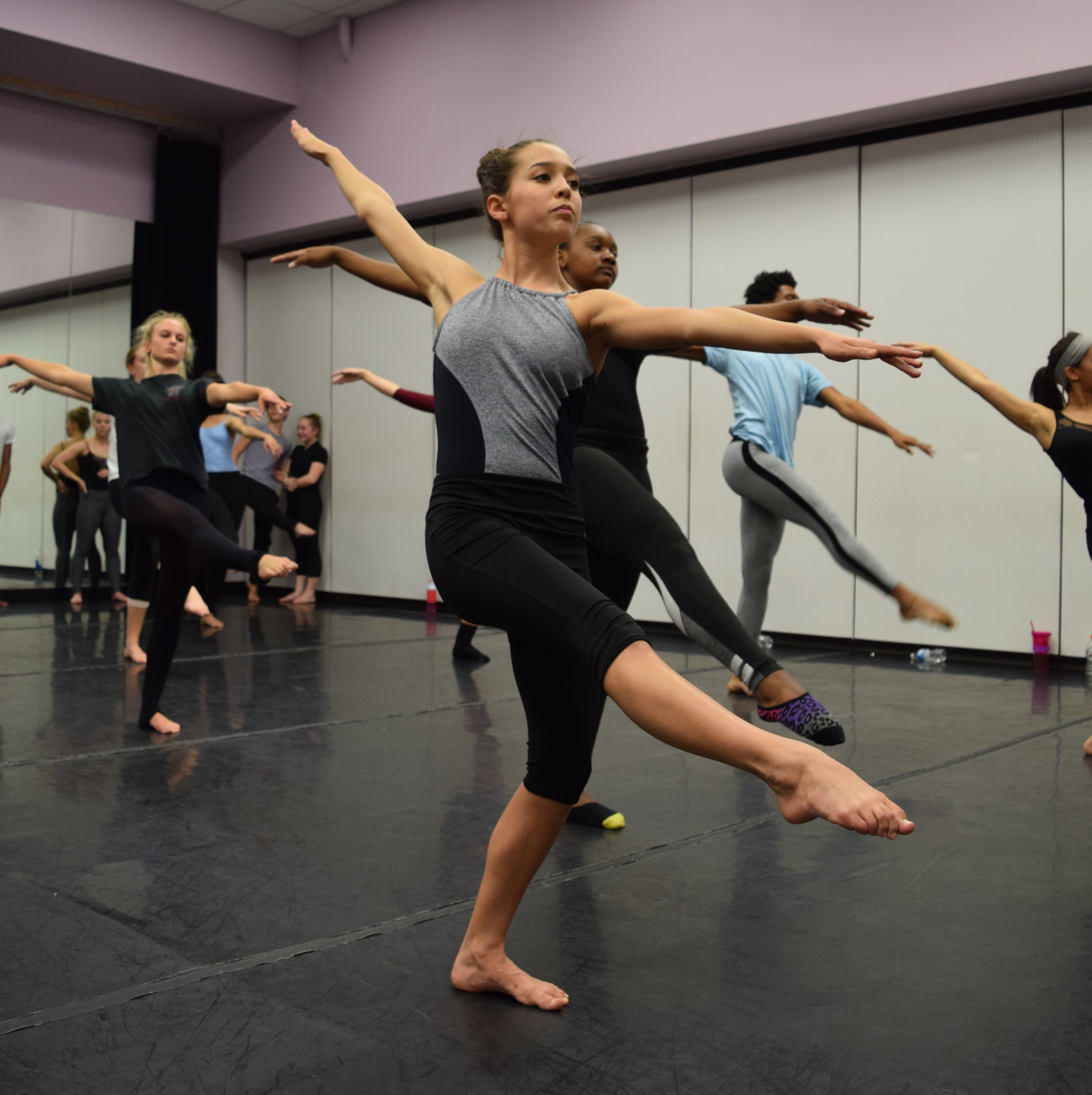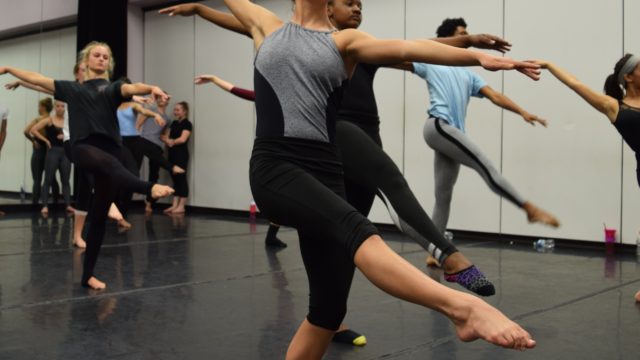By Jim Morrison
Twenty years ago, Keith Moone was a seventh grader in the band at Craddock Middle School in Portsmouth when Scott Jackson showed up to say the new Virginia Arts Festival was offering a chance to learn steel pan and African drum and dance.
Soon, Moone was spending Saturday mornings above a restaurant in downtown Portsmouth practicing steel pan and African drum with about 15 others.
“I showed up that first Saturday and fell in love with it,” he says. “The sound is unique. I had not heard calypso and soca. The rhythm intoxicated me and drew me in.”
When his family moved to Suffolk, his parents drove him into Portsmouth for practices until he got his license and drove himself. The Rhythm Project, as it was called, became a big part of his life.
As the program expanded and he moved into high school, he auditioned and was chosen for the All-Stars. When it came time for college, Moone applied to only one place — West Virginia University, a Mecca for steel band. Teachers like Keith St. Louis and Anthony Hailey that he met during his time with The Rhythm Project had studied there. Ellie Mannette, the native of Trinidad who has been a pioneer of the steel pan, was an artist in residence there.
His passion for the shimmering, soothing sound of the steel pan set his path for life. He earned his degree at West Virginia, stayed in Morgantown and played in in bands, including a jazz-fusion ensemble with Dave Longfellow, now the head of the arts festival’s Rhythm Project. And he landed a dream job as a steel pan builder and tuner for Mannette Musical Instruments, the company of the master.
“He just had an aptitude and talent for percussion,” says Scott Jackson, who started the education program shortly after joining the arts festival in 1996 and now is the general manager and producer of the International Tattoo. “He was a leader.”
Two decades later, The Rhythm Project has come full circle for both Jackson and Moone.
When Jackson signed a check last September for an Arts Festival order of steel pans from Mannette Musical Instruments, he saw a familiar name: Keith Moone. The child of The Rhythm Project was now building steel pan drums for a new generation of Rhythm Project children. “To me,” Jackson says, “that was a special thing.”
The Rhythm Project grew out of a grant from the Portsmouth General Hospital Foundation to do something with the arts helping students. Jackson and Rob Cross, the festival’s founder, were both percussionists. Jackson had worked in schools in Miami with a project named Miami Beat so he started with the idea of creating a world percussion program that would explore Cuba, Africa, South America and other musical heritages.
“The first unit was steel band and it went so great and it was so amazing how quickly the kids learned, I just ditched every other chapter and focused on steel band,” he says.
Dave Longfellow, a graduate of West Virginia, heads The Rhythm Project now. It has grown from that one Portsmouth program to 10 programs in schools in Virginia Beach, Norfolk and Portsmouth as well as an All-Stars and a Governor’s School band. Thirteen groups meet at least weekly (some schools have more than one group) for anywhere from 45 minutes during school to two hours after school, three hours for the All-Stars. This year, about 220 students are participating, the highest in the program’s history.
Longfellow, the director of The Rhythm Project who arrived on the festival staff in 2008, and his assistant, Paul Munzenrider, create the curriculum and teach the classes. Because steel pan drum is such a new instrument, there are no established curricula to crib. “There’s nothing out there,” Longfellow says. “You can’t buy How to Start Steel Band 101.”
Elementary students, for instance, start playing a scale, then practice dynamics — soft, medium, hard — and basic syncopated rhythms, then finish the last half of the class with whatever song they are working on for a performance. Teaching begins with rote work in the elementary schools, then students learn to read music as they advance and by high school instruction it is a combination of rote and written music.
Because it is are one of the few such projects in the country, Longfellow and Munzenrider are resources for others looking to teach pan, which is fast becoming a popular alternative to more traditional instruments.
The reason is you can become proficient quickly.
“There is a lot of evidence that participating in music is positive for kids who play in the band or sing in the chorus,” Jackson says. “”They have a better graduation rate. They do better on testing. They have less trouble in school. What’s happening I think especially in low-income schools is kids aren’t connecting to the violin or connecting to the clarinet. It’s just not something that feels like part of their reality.”
“But the steel pan seems to bridge that. It’s just naturally beautiful. It’s naturally very rhythmic. The incredible thing is you or I or the best steel pan player in the world can hit one note and it pretty much sounds the same,” he adds. “So you get this jump start to something beautiful, you get this great jump start where you feel like I’m accomplishing something.”
The Rhythm Project is only part of the Arts Festival’s education outreach. The other is providing performances as well as intimate in-school sessions with visiting artists.
“The philosophy with The Rhythm Project was we had this grant. How could we reach a small number of students in a really deep way? Look at someone like Keith. It changed his life,” Jackson says. “But we also have great artists coming in. How can we reach a lot of students and give them a special experience?”
That program features both matinees by performers for students and school programs. Over the years, the arts program administrators found that during April and May, the festival’s season, schools were busy with testing. So they’ve shifted to a year-round program that mostly takes the artists into the classroom.
Last year, there were 108 events in 15 school districts from northern North Carolina to Richmond including every Norfolk public school. The student matinees include Romeo and Juliet at the American Theater, the Royal Winnipeg Ballet at Chrysler Hall and annually the Virginia International Tattoo at Scope. Last year, 39,644 students took part in artist education and 22,296 of them came via full or partial financial aid supplied by the festival, funded by individual, corporate and foundation gifts. (The festival charges $10 a student, but does not turn away anyone who can’t afford the fee).
In Norfolk, every public school fifth grader either has an in-school program or goes to a matinee and every sixth grader goes to a matinee
Danielle F. Roby, the senior coordinator for music education for Norfolk Public Schools, says watching live performances can help change how students see and think.
“It connects prior learning in the arts and other core areas, and affords them the opportunity to experience the world in a way that is different. We want our students to be able to use higher order thinking skills to solve problems,” she says. “You won’t find a creative solution if you lack the ability to dream or utilize all parts of your brain. How do you have a vision if you’ve nothing to draw from? There is also a great value in learning to appreciate beauty in all its many forms, and deepening understanding of other cultures through the arts allows for this.”
Christine Foust, the director of education and community outreach, says her favorite memories are of the intimate in-school interactions between performers and 10 to 15 students. “They’re having an experience that most places in the country can’t offer kids,” she says, like a session she recalled at Booker T. Washington High School where students worked with The Harlem Quartet.
One session last season for about 45 third through eighth graders at Old Donation School in Virginia Beach featured Virginia Johnson, director of the Dance Theatre of Harlem. They realized that every day they walked by a picture of her in “Creole Giselle” that was on the wall.
“That’s just not an opportunity most elementary and middle school students get,” says Foust, who came to the festival staff in 2010. “That someone they learned about who was an important figure in the arts was standing right in front of them.”
For Jackson, it’s all about planting a seed. “The vision is if you grow up in Hampton Roads, you talk about the military, you talk about the water. One day — and I think we’re getting there — part of growing up in Hampton Roads should be the arts scene. We can’t do that alone. But the festival can be a leader in that. ”
For Moone, that’s already a reality. One of his best friends, a man he considers a brother, Corey McCormick, started with him playing over the restaurant in Portsmouth and then joined him at West Virginia. He’s had a fulltime job with Mannette for a decade and has performed African drum and steel band throughout the world in places like Korea, Trinidad and Taiwan. He arranges and composes music and continues to play.
Moone makes a point to return for The Rhythm Project’s Virginia International PANFest, where he’s energized by the kids he sees playing. He’ll be there again in May.
“That group is amazing for what it did not only for my music education,” he says, “but for the lasting friendships that we have. People I grew up with in The Rhythm Project, I’m still close with those guys.”





